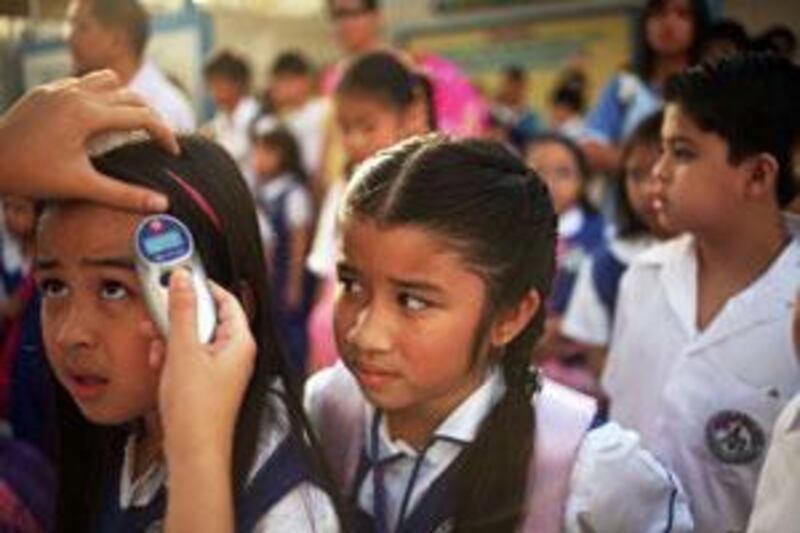As thousands of students return to class after the summer holidays, at least three schools have delayed reopening because of uncertainty about how to deal with swine flu. Schools report that they have received no instructions from the federal Government on how to handle an outbreak. They will get some help today, when a guidance plan is issued by the Ministry of Health (MoH) - and it is likely to recommend that schools stay open.
The plan, which was finalised on Monday, will give schools suggestions on how to identify and contain possible swine flu outbreaks. Some experts have warned that the return to school will cause a spike in the number of cases caused by the H1N1 virus, but a source at the health ministry said the idea of delaying the reopening until November was not an option. "This is not on the agenda. We will discuss with schools today the possible risks and measures to take but we are focusing on education and training, not a delay in opening," the source said.
Schools in the UK and US are not delaying the start of the new term despite concerns about swine flu. Speaking about the ministry's plan last week, Dr Ali bin Shakar, the under-secretary of the health ministry and chairman of the national H1N1 committee, said the MoH approach would have three prongs: healthcare education for students, teacher and parents; training teachers and other school staff on how to respond to suspect cases; and training parents how to help their children if they become infected.
Reports that the Health Authority-Abu Dhabi had advised pupils returning from holiday on the eve of the new school term to stay at home for one week were dismissed by the authority on Tuesday. It said it had not issued any such directives and was awaiting further information from the health ministry as H1N1 was a federal issue. The MoH source said there would be training sessions on the plan today in Abu Dhabi and Sharjah for private school staff.
But in the absence of a federal policy for schools, individual principals have forged ahead with their own plans, which range from delaying the start of the term to carrying on as usual. The Pisco private school in Abu Dhabi has delayed the start of term as has the Al Mawakeb School, which has two branches in Dubai. Global Education Management Systems (Gems), which operates the largest network of private schools in the country with 26 institutions, came up with its own contingency plan to deal with any outbreaks. It has formed a committee made up of senior staff members to create a crisis management strategy to deal with any cases or suspected cases.
"All principals and medical staff at Gems Schools have received training from a senior physician at City Hospital," said Richard Forbes, the director of communications and marketing at Gems. "We are still awaiting guidance from both the Ministry of Education and Ministry of Health on this issue." At the American Community School in Abu Dhabi, term started on schedule on August 17. The school's strategy includes sending literature to parents about H1N1, having teachers on alert for ill pupils and devising a plan to deal with sick children.
Meanwhile, universities are on the alert for students returning from the summer break who display symptoms of swine flu. Some have bought surgical face masks to offer to staff members and students, while also setting up workshops to educate them of the dangers of the virus. klewis@thenational.ae munderwood@thenational.ae
For advice from the Abu Dhabi Education Council on Swine Flu, click here.






